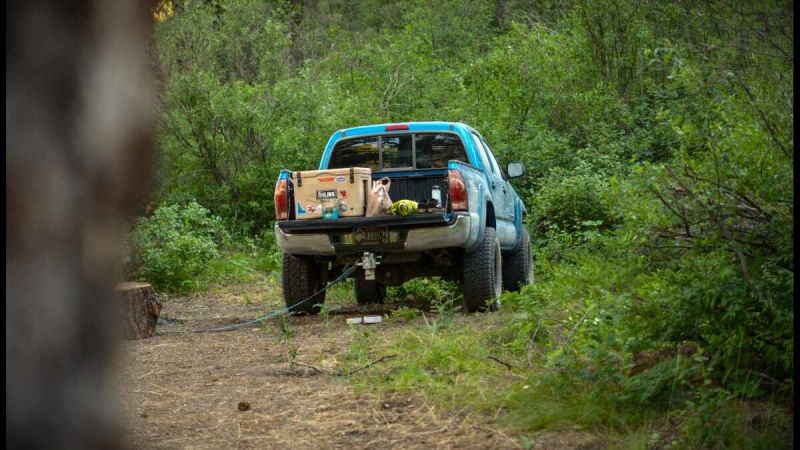A True Story
During one of my house-sitting jobs while in college in Arizona, I was left in charge of the owner’s brand-new Toyota Camry with leather upholstery and all the bells and whistles. The owner told me that I could borrow his car anytime if needed. I thanked him, but declined the offer since I had an old Buick LeSabre that was adequate for my needs. Plus, I had a history of bad luck with other people’s cars---a jinx if you will.
Long story short, soon after while housesitting my Buick died and I needed to drive to town to get a part for it. Making an exception---just this one time---I went to the owner’s garage and started the engine on his Camry that had been sitting untouched since the day he left. Car started fine and I drove into town.
However, while idling at a stoplight, I noticed the paint on the hood was bubbling. Fortunately, a large parking lot was nearby, and I drove into it. I then got out of the car and started to lift the hood but saw flames shooting around the edges. My lower brain stem functions kicked in and I dropped my plans of opening the hood and turned to run for help and call the fire department.
Before I could reach a nearby phone (only drug dealers and yuppies carried cellular phones back in those days), I heard someone yelling and turned around. There was the car, its front end totally in flames…and moving across the parking lot. I don’t know how or why it was moving, but I was about to become responsible for a multi-car fire. Then the oddest thing happened---a car owner in the lot got out of his car and got into my flaming one and either put it in gear or applied the emergency brakes stopping it. Craziest thing I had ever seen someone do to protect a car.
By then, I could hear the wail of sirens and sat down on the curb to watch the show. The car was totally engulfed in flames by then. After the fire department did their thing, someone pointed a finger at me and the fire captain asked me to take a closer look at the burnt hulk of melted plastic and metal.
Lifting the hood up where the fire originated was the charred crispy remains of some rodents and an eagle’s nest-sized collection of twigs, leaves, cacti, paper, and whatnot. Apparently, while sitting in the garage the car became home to desert packrats.
Car was totaled, I was out of a house-sitting job as soon as the owner found out, and I did not get my car part that day.
Why the True Story?
The reason for this story is the point is that it can happen to anyone…and anywhere whether it be in a desert, in the suburbs or in the center of a busy city. Furthermore, sometimes the damage done can be a lot more than a chewed wire or a nut-stuffed exhaust. In fact, the damage can easily total thousands of dollars or more…and happen overnight.
It Happened to This Tacoma Owner
That was the message in a recent Toyota Maintenance YouTube channel episode where the host shows what happened when a 2018 Tacoma owner parked his truck at work for a new job located in the great outdoors of a National Park. Apparently, local park rodents had taken a special liking to the rubber boots on his transaxle, CV boots, and suspension system…that went undetected without warning. Only during an inspection by the host was the damage discovered and will now require a few thousand dollars of repair.
Follow along with the host and be amazed at just how bad the rodent damage was. After the video, is some advice on how to avoid this problem that would be a good course of action whenever you go camping overnight and/or leave your beloved vehicle parked outside or stored in the garage during the winter.
How to Avoid Attracting Critters
About this time last year, Consumer Reports offered the following steps to avoid attracting critters to your car:
- Ideally, park away from places that are known to draw rodents, such as near trash bins or natural food sources, such as vegetable gardens.
- Park in a sealed garage, if possible, and keep the doors closed.
- Make sure the garage doesn’t have stored food and prime nest materials like newspapers, cardboard, straw, rags, and patio furniture cushions.
- Look for gaps around garage windows and doors for possible places that rodents can sneak in. Weather strips under side doors can help seal them. Likewise, inspect the vertical seals on retractable garage doors for damage.
- Don’t store trash cans used for food waste in the garage.
- Keep the car interior free from food wrappers; their scent can draw rodents.
- Move the car regularly, discouraging varmints from taking up residence. And occasionally honk the horn before starting the car to scare away any napping critters.
Rodent Avoidance Product for Cars
As well as the tips above, CR analysts also recommended trying “…a rodent-deterrent tape, essentially an electrical tape treated with super-spicy capsaicin, which Honda describes as ‘the stuff that puts the fire in a bowl of five-alarm chili,’” according to a Honda Technical Service Bulletin as a solution for this problem.
For additional odd stories about cars, here are a few for your consideration:
- Just Rolled In Customer Heats Car with Lit Propane Burner…and More!
- TGIF Car Repair Humor Twofer
- Just Rolled In Friday: When DIY on Your Car Goes Oh So Wrong
Timothy Boyer is an automotive reporter based in Cincinnati. Experienced with early car restorations, he regularly restores older vehicles with engine modifications for improved performance. Follow Tim on Twitter at @TimBoyerWrites for daily news and topics related to new and used cars and trucks.
COMING UP NEXT: Ford Mechanic Shares Ford Explorer Owner’s DIY Misadventure
Image source: Deposit Photos
Set Torque News as Preferred Source on Google












Comments
Most rare story and horrible…
Permalink
Most rare story.
Over 1 million people live and have RVs, and live in trucks, vans and cars and camp. None get rodent cars on fire. This is FUD and propaganda to not camp and keep people in the city. Disgusting content.
8k in damage from rodents…
Permalink
In reply to Most rare story and horrible… by Truth freedom … (not verified)
8k in damage from rodents nesting in my 2016 tacoma air intake. Chewed through the engine wire harness. Peppermint essential oils applied to the engine bay every 2 weeks from now on.
1100 in damage to my knock…
Permalink
In reply to 8k in damage from rodents… by False imprisonment (not verified)
1100 in damage to my knock sensor harness. I had the techs apply that Honda hot pepper tape, but I've found rodents again building a nest on top of my cabin air filter. What do you do, spritz it on the whole engine bay?
Peppermint oil really works…
Permalink
Peppermint oil really works. Saw it demonstrated in night time test with video. Mix a few drops of peppermint oil in a pint of water in a plastic sprayer bottle. Spray engine compartment, and trunk every two or three weeks. Spray interior with ac on in recirculate mode. Spray into interior ac intake. Keeps rodents away from everywhere that smells like peppermint.
The soy based insulation on…
Permalink
The soy based insulation on wiring and other products used in vehicles is like licorice to rodents.
Peppermint and moth balls work as deterants
The hot spicy wire coating…
Permalink
The hot spicy wire coating does not seem to work, I've replaced multiple knock sensors wiring only to have them chewed within a week.